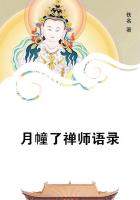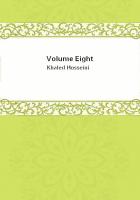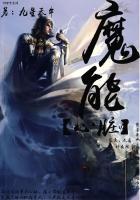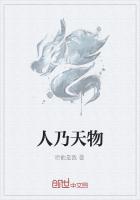An old Catholic family had died out in it, century by century, and was now altogether dead. Portions of the fabric are thirteenth century, and its last architectural revision was Tudor; within, it is for the most part dark and chilly, save for two or three favoured rooms and its tall-windowed, oak-galleried hall. Its terrace is its noblest feature; a very wide, broad lawn it is, bordered by a low stone battlement, and there is a great cedar in one corner under whose level branches one looks out across the blue distances of the Weald, blue distances that are made extraordinarily Italian in quality by virtue of the dark masses of that single tree. It is a very high terrace; southward one looks down upon the tops of wayfaring trees and spruces, and westward on a steep slope of beechwood, through which the road comes. One turns back to the still old house, and sees a grey and lichenous facade with a very finely arched entrance. It was warmed by the afternoon light and touched with the colour of a few neglected roses and a pyracanthus. It seemed to me that the most modern owner conceivable in this serene fine place was some bearded scholarly man in a black cassock, gentle-voiced and white-handed, or some very soft-robed, grey gentlewoman. And there was my uncle holding his goggles in a sealskin glove, wiping the glass with a pocket-handkerchief, and asking my aunt if Lady Grove wasn't a "Bit of all Right."
My aunt made him no answer.
"The man who built this," I speculated, "wore armour and carried a sword."
"There's some of it inside still," said my uncle.
We went inside. An old woman with very white hair was in charge of the place and cringed rather obviously to the new master. She evidently found him a very strange and frightful apparition indeed, and was dreadfully afraid of him. But if the surviving present bowed down to us, the past did not. We stood up to the dark, long portraits of the extinguished race--one was a Holbein--and looked them in their sidelong eyes. They looked back at us. We all, I know, felt the enigmatical quality in them. Even my uncle was momentarily embarrassed, I think, by that invincibly self-complacent expression. It was just as though, after all, he had not bought them up and replaced them altogether; as though that, secretly, they knew better and could smile at him.
The spirit of the place was akin to Bladesover, but touched with something older and remoter. That armour that stood about had once served in tilt-yards, if indeed it had not served in battle, and this family had sent its blood and treasure, time after time, upon the most romantic quest in history, to Palestine. Dreams, loyalties, place and honour, how utterly had it all evaporated, leaving, at last, the final expression of its spirit, these quaint painted smiles, these smiles of triumphant completion! It had evaporated, indeed, long before the ultimate Durgan had died, and in his old age he had cumbered the place with Early Victorian cushions and carpets and tapestry table-cloths and invalid appliances of a type even more extinct, it seemed to us, than the crusades.... Yes, it was different from Bladesover.
"Bit stuffy, George," said my uncle. "They hadn't much idea of ventilation when this was built."
One of the panelled rooms was half-filled with presses and a four-poster bed. "Might be the ghost room," said my uncle; but it did not seem to me that so retiring a family as the Durgans, so old and completely exhausted a family as the Durgans, was likely to haunt anybody. What living thing now had any concern with their honour and judgments and good and evil deeds? Ghosts and witchcraft were a later innovation--that fashion came from Scotland with the Stuarts.
Afterwards, prying for epitaphs, we found a marble crusader with a broken nose, under a battered canopy of fretted stone, outside the restricted limits of the present Duffield church, and half buried in nettles. "Ichabod," said my uncle. "Eh? We shall be like that, Susan, some day.... I'm going to clean him up a bit and put a railing to keep off the children."
"Old saved at the eleventh hour," said my aunt, quoting one of the less successful advertisements of Tono-Bungay.
But I don't think my uncle heard her.















